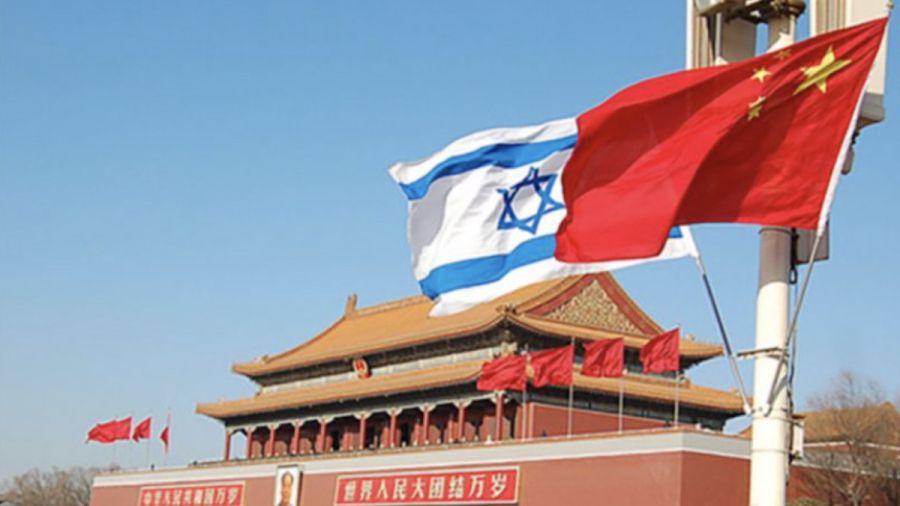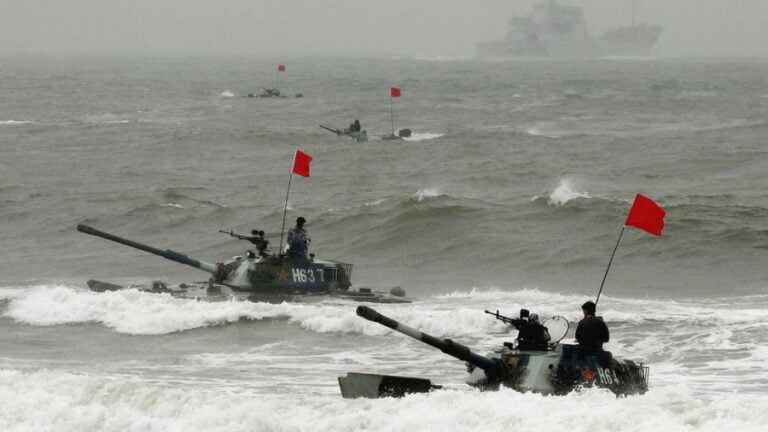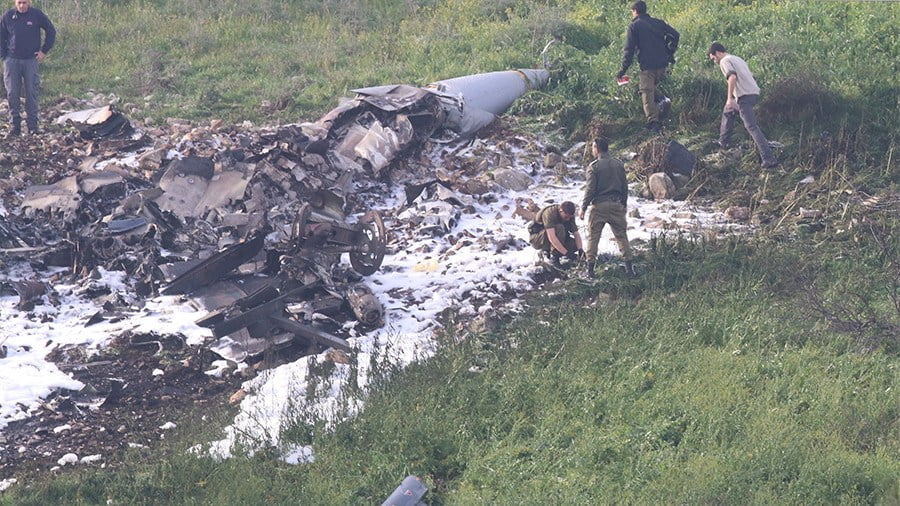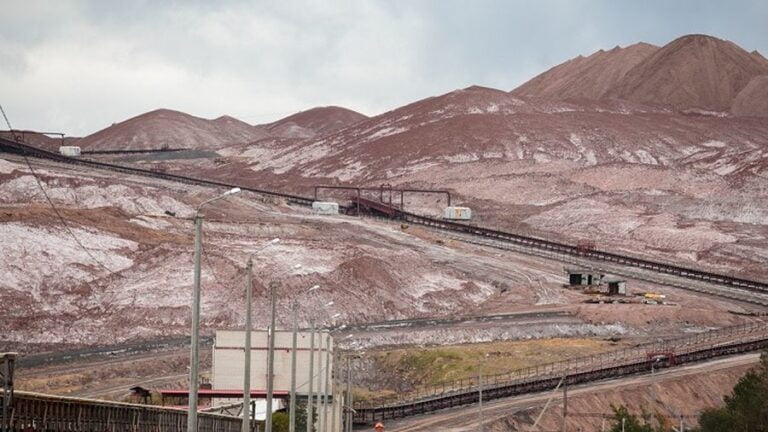Israel Ponders a Pax Sinica
Efraim Halevy, the former head of Israel’s foreign intelligence service Mossad, said on December 14 that China has played a critical role in nuclear negotiations with Iran now underway in Vienna.
According to Israel’s Channel 7, Halevy said, “The only player who can be effective and bring about progress in the Vienna debates is the only player we do not hear his position on the Iranian issue, and that is China.”
The former Mossad director added, “China’s influence on Iran’s policy is probably the biggest influence a foreign power has over Iran. At no point in history did China make such crucial contribution to world stability as it has today in Vienna.”
Halevy spoke at the annual conference of SIGNAL (Sino-Israel Global Network and Academic Leadership), an Israeli think tank. Two months ago Halevi told the Israeli newspaper Haaretz, “The Chinese have taken steps in recent months that they have never taken before. The way China has been treating Israel on these issues has undergone a change in recent months on various issues.”
He didn’t specify what sort of change had occurred.
The 87-year-old Halevy has not served in an official capacity since 2003, and spoke as a senior statesman rather than as an active policy-maker. Nonetheless, his view of China as a stabilizing force in the region is noteworthy, especially at a time of high tension between Beijing and Israel’s ally Washington.
Israel is and will remain an American ally. Apart from a few European helicopters and some trainers, it flies American airframes. Its armaments and R&D are tightly integrated with the American military and defense contractors. That will not change in the foreseeable future.

America’s withdrawal in disorder from Afghanistan made a deep impression on many Asian powers. America left behind the detritus of its failed intervention in Iraq and Afghanistan for the Asians to clean up. China and Russia worry with good reason that the Taliban will support separatists in Xinjiang Province and the Russian Caucasus, respectively.
China worries that chaos in Afghanistan will play into the hands of Pakistani radicals, the opposition to Islamabad’s China-backed military. Iran’s new stridency is an added complication for Moscow and Beijing. All of this makes Israel, the region’s strongest military power, figure prominently in their considerations.
Eight years ago I argued that China had both the interest and the influence to play a stabilizing role in Western Asia—if it chose to do so (“A Pax Sinica in the Middle East?,” October 28, 2013).
I wrote at the time: “China’s capacity to exert pressure on the Iranian regime is considerable. Apart from its interest in avoiding nuclear proliferation in the Persian Gulf, China has a number of points of conflict with Iran…It is worth considering a radically different view of China’s interests in the lands between the Himalayas and the Mediterranean: no world power has more to lose from instability than does China…Without attributing any geopolitical intention to Beijing, the visible facts make clear that China has the capacity to exercise strategic influence in the Middle East, and it has an unambiguous interest in maintaining stability.”
China keeps its friends close and its enemies closer. Last year it announced a US$400 billion investment deal with Iran, but with no real specifics on the avowed outlays. It has been Iran’s main trading partner for more than a decade, taking advantage of Western sanctions on Iran to dictate usurious terms of trade. But China needs Saudi Arabia, Iran’s strategic rival, more than it needs Iran.
China imported over 8 million tons of oil from Saudi Arabia in September 2021, a 50% increase over the previous year. Imports from Russia that month stood at 6.5 million barrels. Iranian-backed Houthi rebels attacked Saudi oil processing plants at Abqaiq and Khurais in September 2019, and have fired missiles at Saudi cities.
China may use its ties to Iran to exercise pressure on the United States, but it does not want Tehran to dominate the Gulf. Some years ago in Beijing, I heard a presentation under the auspices of SIGNAL by a Chinese scholar explaining how China carefully calibrates its missile sales to Iran and Saudi Arabia to maintain the regional balance of power.
Iran gets more missiles, but the Saudis get more sophisticated ones including the CSS-6, CSS-5 and CSS-2 IRBM’s and ICBM’s.

Apart from Iran, Israel’s main worry in Western Asia is Turkey, the main sponsor of the Muslim Brotherhood. Israel and China to my knowledge have done nothing to coordinate their policies toward Turkey, but their interests overlap.
After the Brotherhood regime in Egypt fell to a military coup in 2013, its leadership took up exile in Turkey. A rapprochement between Egypt and Turkey, though, puts the Islamist exiles at risk. The Gulf States fear the Brotherhood, because it is the only political force that might replace the monarchies. Erdogan’s government, meanwhile, has accused the United Arab Emirates of financing the 2016 attempted military coup in Turkey.
Turkey’s influence has diminished drastically during the past year, however. The collapse of the Turkish lira leaves it dependent on the Gulf States. Its diplomatic isolation forced it to mend fences with Egypt as well as the UAE.
Worst of all, Erdogan’s recent rhetoric in defense of China’s beleaguered Turkic minority, the Uighurs of Xinjiang province, has enraged China, which believed it had a deal with the mercurial Turkish leader.
On November 12, Erdogan posed in front of a map of the “Turkic world” that included Xinjiang. Erdogan habitually referred to Xinjiang as “East Turkistan” until Chinese pressure and incentives kept him quiet—until recently.
Ethnic separatism, though, is a game that two can play. Turkey’s greatest weakness is a fast-growing Kurdish minority that will comprise half the country’s young people by the 2040s. I first heard Chinese strategists muse about the “Kurdish card” as a lever against Erdogan in 2015.
Now China has made the threat publicly. On October 29, Chinese diplomat Geng Shuang denounced Turkey’s operations in northeast Syria—that is, against Syria’s Kurdish minority—as illegal.
Ambassador Geng declared, “China urges Turkey to abide by the international law, including international humanitarian law, protect civilians, maintain infrastructure operations, and guarantee humanitarian access for the UN.” Turkey’s UN Ambassador Feridun Sinirlioğlu replied, “We will not learn from those who violate international human rights law and humanitarian law.”
China has been a major source of investment as well as financial support for Turkey, including a $4.1 billion swap line between the two countries’ central banks. With its currency in free fall and inflation out of control, Turkey does not need a fight with China—but it appears to have backed into one.

Earlier, Chinese strategists envisioned a Pakistan-Iran-Turkey bloc of non-Arab Muslim states under Chinese influence and united by Chinese infrastructure. After the collapse of Afghanistan, Beijing has learned that the fractious region cannot easily be cemented by economic incentives.
China left the Middle East to America for decades, “free riding” on the American Navy’s protection of sea lanes. It will have to learn how to maneuver in the region like imperial powers of the past.
In the rare situations in which China has gone toe-to-toe with the United States in the region, it has mostly come out ahead. A noteworthy shift in Western Asia this year is the UAE’s open pivot towards China.
The UAE rejected American demands that it remove 5G broadband equipment bought from China’s Huawei Technologies as a condition for the purchase of the F-35 stealth fighter by suspending negotiations on the American plane and buying 80 French Rafale fighters instead.
The UAE was the first Gulf state to establish diplomatic relations with Israel under the Trump-sponsored “Abraham Accords,” and its relationship with Israel is strong across a wide range of fields. The UAE also has excellent relations with China, although it acceded to American demands to stop Chinese construction on a port that the US claimed had a military purpose—while denying the American allegation.
“The United States’ anti-China high-pressure tactics are ineffective, and China has won – is this the new global trend?,” wrote Chen Feng in the influential Chinese news site “Observer” (guancha.cn).
“All F-35s in the sky and on the ground are members of a huge automated logistics support system. The serial number, offline time, use time, upgrade and maintenance status of all parts of each aircraft are in Lockheed’s database. Lockheed can put the required spare parts into the supply chain before the user knows they are needed…greatly reducing the maintenance cycle and waiting for spare parts,” Chen wrote, adding:
“Of course, Lockheed can not only provide remote technical support, but also remotely monitor the use of any aircraft, including mechanical status, route, mounting, and maneuvering overload….It is no exaggeration to say that Lockheed can remotely lock any F-35 in the world with one key…The U.S. maintains full-time and full-time monitoring of any country that uses F-35s.”
The Rafale lacks the F-35’s stealth capability, but it comes with no strings attached from the French. The UAE may decide to engage Iran, and it doesn’t want an American veto over its military options.

More broadly, the Gulf States have a broad divergence of interests with the US. American strategists reserve the option of blockading oil deliveries to the Persian Gulf in the event of a Chinese attack on Taiwan or similar event. The Gulf monarchies do not care what happens to Taiwan and want to sell their oil to China.
Unlike the UAE, Israel accepted American demands to exclude Huawei from its 5G buildout. Then-secretary of state Mike Pompeo extracted a memorandum of understanding to that effect from then-prime minister Benyamin Netanyahu in May 2020, eliciting a bitter protest from China.
Israel is the world’s leader in cybersecurity with a fifth of the world’s total investment in the field, and it is noteworthy that it took Pompeo to explain to them that it was risky to use Chinese equipment. In any case, Israel accepted Washington’s demands, whether it liked them or not.
How, then, does America’s ally Israel deal with America’s strategic competitor China? The answer, as I argued in a recent interview with Israeli journalist Caroline Glick, is suggested by Israel’s remarkably good relationship with Russia during times of aggravated tension between Washington and Moscow.
After Russia entered the Syrian civil war in 2015, Israel developed efficient (if not cordial) working relations with the Russian military. Russia stood aside while Israel conducted thousands of raids on Iranian assets in Syria. Netanyahu and Putin had a good personal rapport by all accounts.
Israeli-Russian relations blossomed while the United States enforced sanctions on the Russian economy, and while a large portion of the American body politic claimed (speciously in my view) that Russia had tried to hack an American presidential election. I expect something similar will emerge with China.






